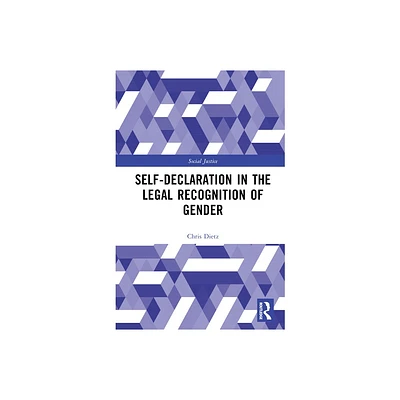Home
The Legal Recognition of Same-Sex Relationships: Emerging Families Ireland and Beyond
Loading Inventory...
Barnes and Noble
The Legal Recognition of Same-Sex Relationships: Emerging Families Ireland and Beyond
Current price: $115.00


Barnes and Noble
The Legal Recognition of Same-Sex Relationships: Emerging Families Ireland and Beyond
Current price: $115.00
Loading Inventory...
Size: Hardcover
*Product Information may vary - to confirm product availability, pricing, and additional information please contact Barnes and Noble
This book analyses the key issues affecting same-sex families in Ireland and beyond today
: marriage; formalised and non-formalised same-sex relationships outside of marriage; parental rights for same-sex couples with donor-conceived or surrogate-born children; and the protections afforded to same-sex families under European human rights law.
It critically examines the Irish and Australian citizen-led approaches to achieving marriage equality, which made Ireland and Australia the first and second countries in the world, respectively, to extend the institution of marriage to same-sex couples on foot of a popular vote.
It analyses the pragmatic and symbolic effects of civil partnership, which was the premier means of formalising same-sex unions in Ireland. Ireland's hurried 'divorce' from civil partnership in the aftermath of marriage equality is examined in light of evidence from the U.K. indicating that this mode of relationship recognition remains popular with both same-sex and opposite-sex couples in that jurisdiction.
The book goes on to consider the legal position of same-sex couples who are parenting children born via assisted reproductive techniques (ARTs) like donor-assisted human reproduction (DAHR) and surrogacy.
Finally, it looks at the impact (or lack thereof) of the European Convention on Human Rights (ECHR) as regards the protection of same-sex relationships, marriage and parental rights for same-sex couples. It does this to determine what is required of Ireland and other states party to the ECHR to comply with European human rights obligations when it comes to legally recognising couples, and parents, of the same sex.
Shortlisted for the 2024 SLS Margaret Brazier Prize for Outstanding Mid-Career Scholarship.
: marriage; formalised and non-formalised same-sex relationships outside of marriage; parental rights for same-sex couples with donor-conceived or surrogate-born children; and the protections afforded to same-sex families under European human rights law.
It critically examines the Irish and Australian citizen-led approaches to achieving marriage equality, which made Ireland and Australia the first and second countries in the world, respectively, to extend the institution of marriage to same-sex couples on foot of a popular vote.
It analyses the pragmatic and symbolic effects of civil partnership, which was the premier means of formalising same-sex unions in Ireland. Ireland's hurried 'divorce' from civil partnership in the aftermath of marriage equality is examined in light of evidence from the U.K. indicating that this mode of relationship recognition remains popular with both same-sex and opposite-sex couples in that jurisdiction.
The book goes on to consider the legal position of same-sex couples who are parenting children born via assisted reproductive techniques (ARTs) like donor-assisted human reproduction (DAHR) and surrogacy.
Finally, it looks at the impact (or lack thereof) of the European Convention on Human Rights (ECHR) as regards the protection of same-sex relationships, marriage and parental rights for same-sex couples. It does this to determine what is required of Ireland and other states party to the ECHR to comply with European human rights obligations when it comes to legally recognising couples, and parents, of the same sex.
Shortlisted for the 2024 SLS Margaret Brazier Prize for Outstanding Mid-Career Scholarship.


















